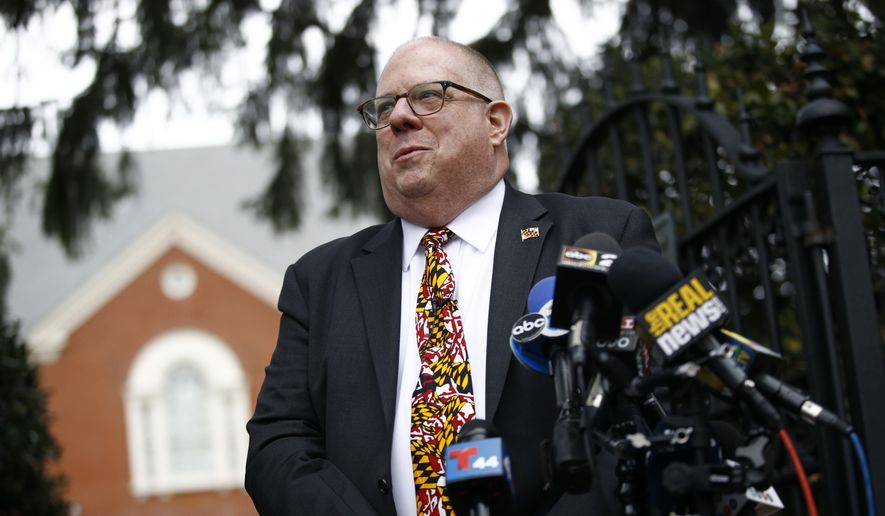With primary elections just days away, the Republican Party of Maryland is targeting independent — and even some Democratic — voters by citing lower taxes, more jobs and greater bipartisanship under the deep-blue state’s GOP administration.
“We view independents as immediately more available to a Republican message,” said Dirk Haire, chairman for the Maryland Republican Party. “We’re constantly debating what issues are most important to independents and which issues we should focus on.”
Mr. Haire notes that wage growth in Maryland has nearly doubled under Republican Gov. Larry Hogan, who has not raised taxes and has offered tax credits to manufacturing companies to create new jobs.
Patrick O’Keefe, executive director for the Maryland Republican Party, said the party assists their candidates in finding their own “clear and concise” message that is appealing to all voters and can reach new audiences.
“Gov. Hogan has a very clear message of cutting taxes, promoting job growth and cleaning up government,” Mr. O’Keefe said. “Each candidate is a bit different [but this] is important so that way they best represent the districts they are running in.”
Republicans know they have a tough row to hoe in Maryland: Democrats outnumber them 2-to-1, and have dominated state politics for decades. In fact, Maryland’s congressional districts currently are under Supreme Court review for being too partisan.
But the state GOP sees a potential opening among independent voters, Maryland’s fastest-growing voting segment. According to the State Board of Elections, the number of independent voters has double over the past 20 years, and independents make up about 18 percent of registered voters.
Amie Hoeber, a Republican candidate for Maryland’s 6th Congressional District, said she “knows what the numbers are” and “can’t win without the independents.”
Her district in the western part of the state was once a Republican stronghold, but Democrats’ redistricting plans in 2011 turned the region blue. But she says a significant number of Republicans and independents are still there and could help her at the ballot box.
“In order to begin to get myself acquainted with both how they think and what they want if they’re not me, I’m out there talking to them all the time,” said Ms. Hoeber, a former national security official in the Reagan administration who describes herself as a “moderate Republican” and “not an ideologue.”
Those descriptions also would apply to Mr. Hogan, on whose coattails state Republicans would like to ride. The former businessman, who has been a frequent critic of President Trump, enjoys an approval rating of 71 percent, possesses nearly $10 million in campaign cash and, according to a Washington Post poll, has a 10 percentage point lead over his likely Democratic challengers in a head-to-head match-up. Mr. Hogan is aiming to be the first Republican re-elected as Maryland governor since 1954.
“His ability to win over voters who are not Republicans has, obviously, been vital to his political success, because otherwise he never would have won in the first place,” said Geoffrey Skelley, media relations coordinator for the University of Virginia Center for Politics.
Former Maryland Gov. Robert L. Ehrlich, who lost his re-election bid in 2008, said there are still some conservative state Democrats who voted for Mr. Trump, adding that Maryland’s independents are a mix of disenfranchised Democrats, former Republicans and truly unaffiliated voters.
He said the Maryland GOP must continue its statewide push for voters, taking no one for granted. It’s advice Republican officials have heeded.
“Our door-knocking and ID efforts are not only focused on Republicans,” said Mr. Haire, the state GOP chairman. “There’s a significant number of independents and Democrats that we’re also seeking to ID and we believe will come out and vote for Gov. Hogan and you know, many of our other candidates.”




Please read our comment policy before commenting.